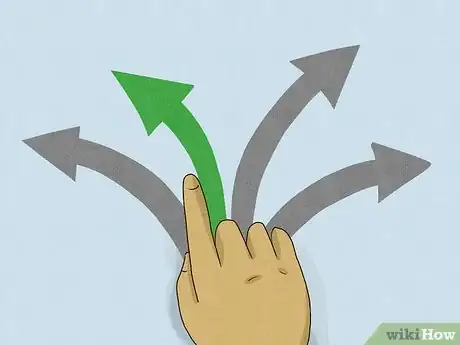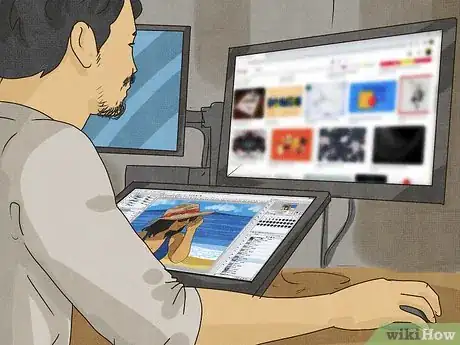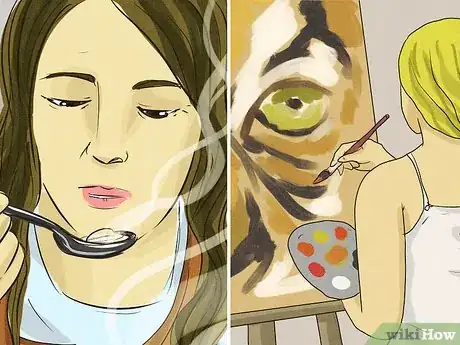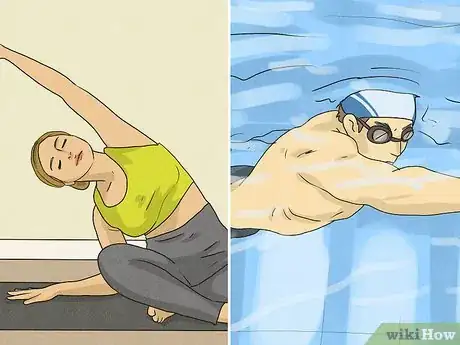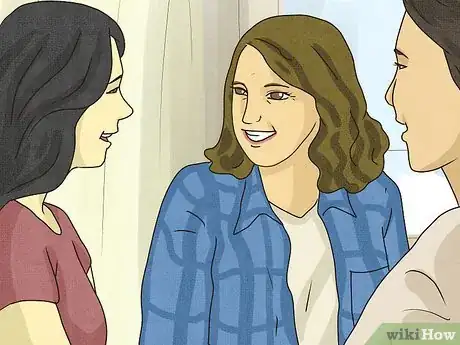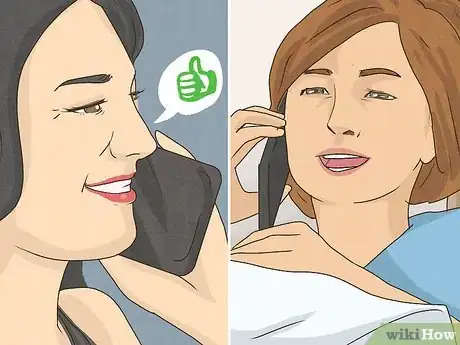This article was co-authored by Susan Pazak, PhD and by wikiHow staff writer, Jennifer Mueller, JD. Dr. Susan Pazak is a Licensed Clinical Psychologist & Professional Life Coach. With more than 21 years of experience, she specializes in treating adolescents and adults with psychological issues using cognitive behavioral therapy, symptom reduction skills, and behavior modification techniques. She has been featured in numerous media outlets and shows, including “My Strange Addiction". Dr. Pazak holds a BA in Psychology with a minor in Communications from The University of Pittsburgh, an MA in Clinical Psychology from Pepperdine University, and a PhD in Clinical Psychology from Alliant International University.
There are 8 references cited in this article, which can be found at the bottom of the page.
This article has been viewed 13,893 times.
By the time you reach your fourth decade of life, you have a strong sense of who you are and what you want. But what if what you don't want is a romantic partner? If you look around at pop culture, you'd get the impression that anyone your age without a romantic partner must be miserable—but actually, that's far from the case. Turns out single people tend to be healthier and happier than people in long-term relationships.[1] X Research source If you're not sure how to get there, never fear! We here at wikiHow have gathered some of the best tips to help you get the best out of your 40s as a single person.
Steps
Take advantage of the freedom to make your own choices.
-
You can make decisions without anyone else's input. This means you ultimately have the freedom to do what you want with your time and money—and you have more time and money than people saddled with relationships and families. Choose what makes you happy and what makes you feel more fulfilled.[2] X Research source
- For example, if you decide you want to paint your bedroom purple, you can do that. You don't need to talk to your partner about it first or work the project around other people's schedules.
- This also means you can do things that sound positively indulgent to people who have a partner and kids. For example, if you want to sit down and read the latest bestseller cover-to-cover in one evening, you can do that without letting anything else fall by the wayside.
Put yourself first without guilt.
-
You don't need to take anyone else's feelings into consideration. By the time you're in your 40s, you probably have a really good idea of what you want out of life—and being single means nothing is standing in your way of reaching for it. There's no need to compromise or make sacrifices, as you might need to do if you were part of a couple.[3] X Research source
- For example, if you decide that you want to leave a secure job to work at a nonprofit or pursue a creative career with less stability. You can do that—the only needs you have to take into consideration are your own.
- Because you don't have to worry about anyone else's competing interests, you can do "extra" things without any pressure as well. For example, if you want to join a bowling league, you don't have to ask your partner if they'll be okay if you're not at home on Tuesday and Thursday nights.
Launch a passion project.
-
You have the skills and experience to do something you've always wanted to do. A passion project is usually something that most other people won't see the utility in—but you're doing it for yourself because it's something that you love. If it takes a lot of time and effort to get your project off the ground, so what! You've got the freedom to see it through. It might not ultimately result in any financial gain, but you'll feel more fulfilled for having done it.[4] X Research source
- For example, maybe you've been adapting handed-down family recipes and you've always wanted to write your own cookbook. Now you have the time, energy, and experience to get those recipes and stories down.
- Another factor is financial stability. Typically you're enjoying a stable career by the time you hit your 40s, which gives you more resources to put towards your passion project.
Learn new things.
-
Mastering a new skill enhances your sense of self-worth. Take the opportunity to learn something new that you've always wanted to be able to do. Through the process, you'll become a more well-rounded person.[5] X Research source
- For example, if you've always wanted to learn how to cook, you might sign up for a community cooking class.
- You can also learn on your own. For example, there are apps that will help you learn a language or how to play a musical instrument. Because this is self-directed learning, you can use them whenever you want.
Stay active and physically fit.
-
Regular exercise and an active lifestyle improve your mood and self-esteem.[6] X Expert Source

Licensed Clinical Psychologist & Professional Life Coach Expert Interview. 22 February 2022. You have a lot more time to spend on yourself and you don't have to work around anyone else's schedule. Working out is a lot more fun if you can do it when you want to.[7] X Research source- Instead of regular workouts in a gym, you might also try joining a specific sports club, where you can make friends with other people who enjoy the same activity. For example, if you played tennis in high school, you might join the local tennis club and get back into it.
Take solo vacations.
-
Traveling alone provides opportunities for self-reflection. By the time you reach your 40s, you probably already have a pretty good sense of who you are and what you want out of life. But putting yourself in a different and unfamiliar context can bring out parts of you that you didn't know existed. What a great way to get to know yourself better![8] X Expert Source

Dating Coach Expert Interview. 14 October 2020.- If that wasn't enough to convince you, solo travelers can often take advantage of some pretty spectacular deals that aren't available to people traveling with others.
- Nervous about traveling by yourself? Start small. A weekend trip to a town that's just a couple of hours away from home can help you get more comfortable exploring a new setting on your own.
Build strong connections with your family and friends.
-
You have the freedom to spend time with the people you want to. People often assume singles are lonely—but as long as you have a few close friends, that's far from the case. Apart from befriending coworkers, community groups aligned with your interests provide ample opportunities to cultivate relationships with new friends.[9] X Research source
- Establishing regular meetups is a good way to strengthen your bond with adult friends. For example, you might start a book club or have a weekly game night.
- You might also spend time with friends and family by running errands together. If you're shopping, take advantage of discounts for buying things in large quantities, then split them up later—no worries about anything going to waste.
Help people and volunteer with local organizations.
-
Helping others increases your self-confidence and self-worth. Finding a local organization you can volunteer with is a good way to spend some of your time, but you don't even have to look for a formal arrangement. Simply helping out a neighbor who needs someone to walk their dogs or caring for a sick parent also helps you feel more fulfilled.[10] X Research source
- Think about things you love and look for related volunteer opportunities. For example, if you love visual art, you might volunteer at your local art museum.
Say "yes" to every invitation.
-
Put yourself out there and engage with the world around you. To really enjoy being single, be open to different experiences—you never know what you might enjoy. Even if you find you don't like something, you still learn about yourself through trying it.[11] X Expert Source

Dating Coach Expert Interview. 14 October 2020.- For example, suppose a friend invites you to go hiking with them. You think that you're not really that into nature and haven't ever really gone hiking before. Say "yes" anyway! You might have a good time and find a new hobby you want to explore, but even if you don't, you'll still have a great story to share about the experience.
Develop new hobbies.
-
You have the time and freedom to explore new activities. You don't have to worry about anyone judging or questioning your interest in things that capture your fancy. Beyond that, if you try something and discover it's not for you, you can simply stop doing it without worrying about anyone saying anything.[12] X Trustworthy Source Cleveland Clinic Educational website from one of the world's leading hospitals Go to source
- Dabbling in a lot of different things can keep you from getting bored or feeling like you're in a rut. You also have the ability to fulfill all of your different sides. For example, you might join a rec league soccer team, start a book club, and take a pottery class.
- Because you're likely to be pretty set in your career, you also have the money to start hobbies that might require a little more investment at the outset. For example, suppose you've always wanted to try fencing? The gear can be a little pricey to start, but if you're single you've got the time and the money to go for it.
Enjoy dating without too many expectations.
-
In your 40s, you're typically not as worried about the future. You might feel more pressure about dating when you're younger. Some of that pressure comes from thoughts of the future, of getting married and starting a family. By the time you hit your 40s, though, you know who you are and what you like, and you can enjoy dating for the sake of the experience.[13] X Research source
- Through this experience, you'll discover that there are many people you can have a great time with who you wouldn't necessarily consider "the one." Instead of trying to find one person to fulfill all of your needs, you can enjoy experiences with people who only tick one or two boxes. Choose to have fun on the journey on the way to the end goal destination.[14]
X
Expert Source

Licensed Clinical Psychologist & Professional Life Coach Expert Interview. 22 February 2022. - For example, you might date a man who you have great conversations with about philosophy and literature—but he doesn't really know anything about sports. When you want to talk sports, there's someone else you can share your hockey season tickets with.
- Through this experience, you'll discover that there are many people you can have a great time with who you wouldn't necessarily consider "the one." Instead of trying to find one person to fulfill all of your needs, you can enjoy experiences with people who only tick one or two boxes. Choose to have fun on the journey on the way to the end goal destination.[14]
X
Expert Source
Challenge the prejudice against singles you encounter.
-
Tell people your life is satisfying and fulfilling. You'll likely meet people who believe that life isn't complete until you're part of a couple—they simply can't imagine that you'd actually be happy being single. If someone makes negative comments or offers to set you up, politely let them know that you like your life and you're not interested in changing it.[15] X Research source
- For example, suppose you meet a friend of a friend who's shocked that you're single. They say, "Oh, don't worry—you look great for your age! I'm sure you'll find someone soon!" You might respond, "I'm not worried, nor am I looking for anyone, but I appreciate your concern."
You Might Also Like







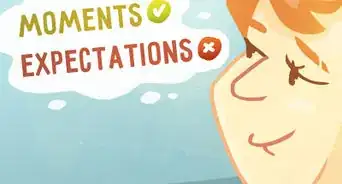


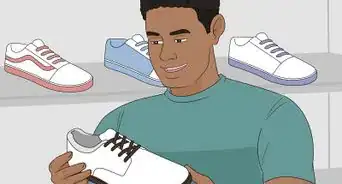
 22 Signs You’ll Never Get Married (But Will Still Be Happy Anyway)
22 Signs You’ll Never Get Married (But Will Still Be Happy Anyway)


References
- ↑ https://psyche.co/guides/how-to-defy-societys-singlism-and-embrace-independent-life
- ↑ https://www.psychologytoday.com/us/blog/living-single/201810/are-single-people-happy-because-they-are-free
- ↑ https://psyche.co/guides/how-to-defy-societys-singlism-and-embrace-independent-life
- ↑ https://www.psychologytoday.com/us/blog/the-right-side-40/202010/midlife-is-springboard
- ↑ https://psyche.co/guides/how-to-defy-societys-singlism-and-embrace-independent-life
- ↑ Susan Pazak, PhD. Licensed Clinical Psychologist & Professional Life Coach. Expert Interview. 22 February 2022.
- ↑ https://www.psychologytoday.com/us/blog/not-born-yesterday/201308/whats-so-good-about-being-single
- ↑ Cristina Morara. Dating Coach. Expert Interview. 14 October 2020.
- ↑ https://www.psychologytoday.com/us/blog/savvy-auntie/201402/what-i-know-about-being-single-now-im-in-my-40s
- ↑ https://www.psychologytoday.com/us/blog/living-single/201810/are-single-people-happy-because-they-are-free
- ↑ Cristina Morara. Dating Coach. Expert Interview. 14 October 2020.
- ↑ https://health.clevelandclinic.org/how-to-be-ok-with-being-single/
- ↑ https://www.psychologytoday.com/us/blog/savvy-auntie/201402/what-i-know-about-being-single-now-im-in-my-40s
- ↑ Susan Pazak, PhD. Licensed Clinical Psychologist & Professional Life Coach. Expert Interview. 22 February 2022.
- ↑ https://psyche.co/guides/how-to-defy-societys-singlism-and-embrace-independent-life
About This Article

